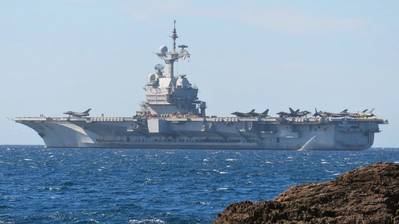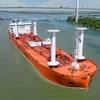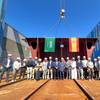French Carrier Joins NATO Drills as Russian Threat Looms
As Russia's war in the Ukraine drags on now into its third year, NATO today launched one of its biggest naval deployments since February 2022, with French aircraft carrier the Charles de Gaulle under the command of the alliance for the first time.
The French nuclear-powered carrier began its mission in the Mediterranean Sea, close to its home port of Toulon. Placing the Charles de Gaulle under NATO operational control for the first time is highly symbolic, not least because the warship is named after the former president who took France out of the alliance’s U.S.-led command structure in 1966.
France returned in 2009 but officials say Paris' interest in NATO exercises and missions increased after Russia’s invasion of Ukraine in February 2022, reflecting a view that a more assertive Moscow made NATO more vital to French security interests.
The decision to put the nuclear-powered aircraft carrier under NATO command drew criticism from the French far left and far right, who said it represented a loss of sovereign power. French officials say the move is a normal part of being a member of a multinational military alliance.
The deployment will involve some 20 vessels, including carrier strike groups from Italy, Spain and Turkey, he said. Its tasks will include long-range flights to simulate strikes in support of troops in eastern Europe.
On the eve of the mission, ambassadors to NATO from its 32 member countries visited the carrier, watching as grey Rafale fighter jets – catapulted by steam – took off from the flight deck under a pale blue sky.
The North Atlantic Treaty Organization has held various iterations of Neptune Strike – which it calls "enhanced vigilance activity" - over the past two years. U.S. Vice Admiral Thomas Ishee, commander of NATO’s Striking and Support Forces, said the latest version - which lasts until May 10 - was among the biggest. "NATO is not at war with Russia, but we are very concerned with Russia and we are very interested in deterring Russia against aggression," he said.
(Reuters)














